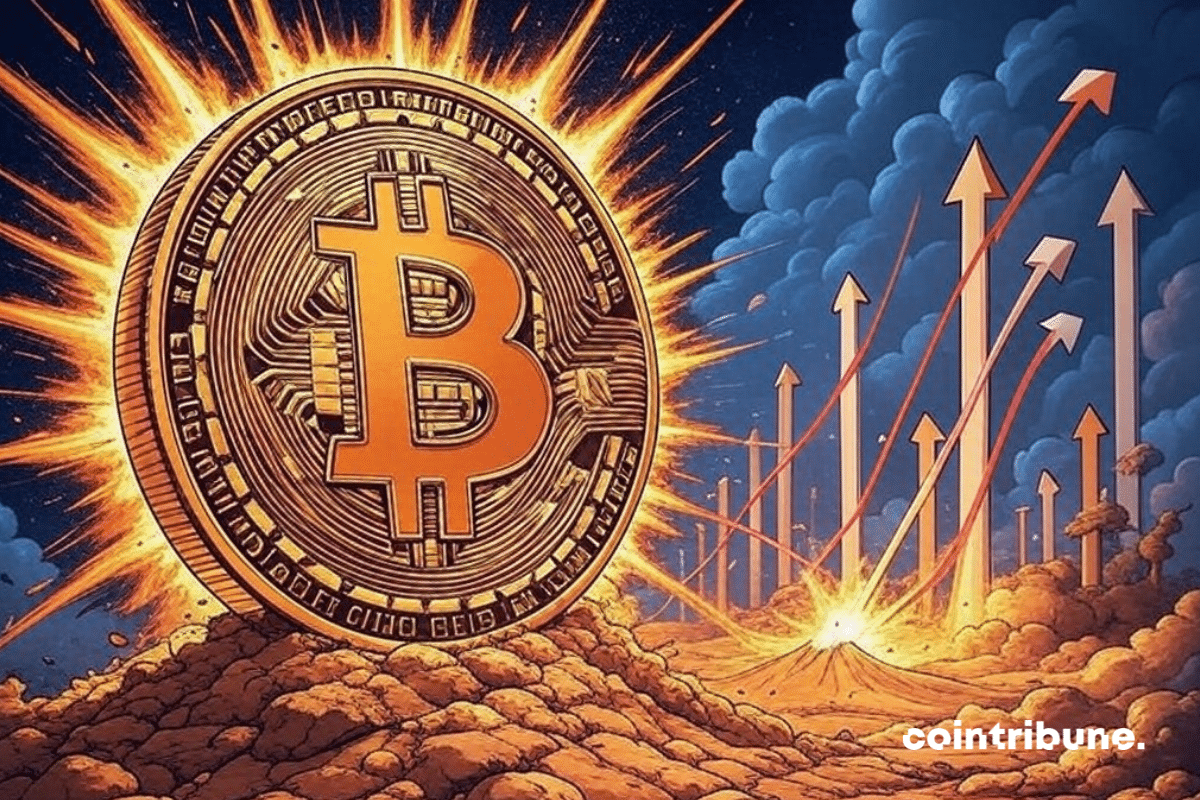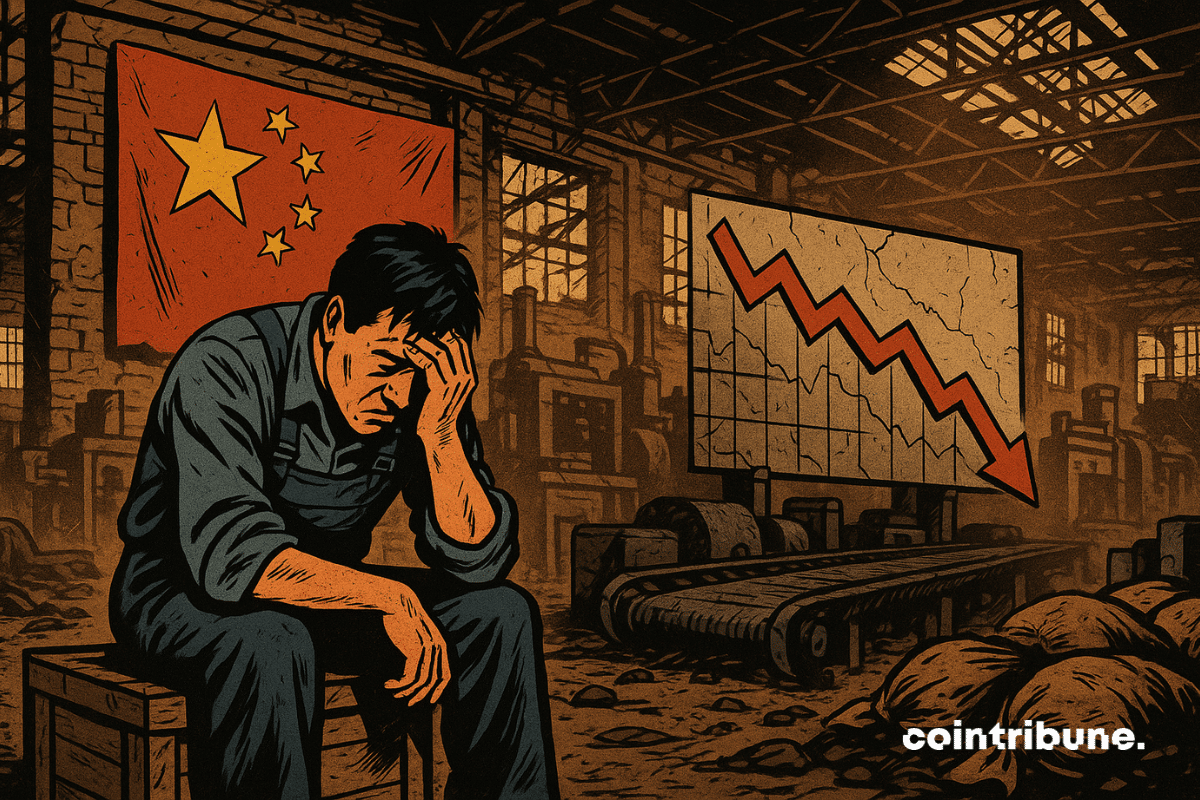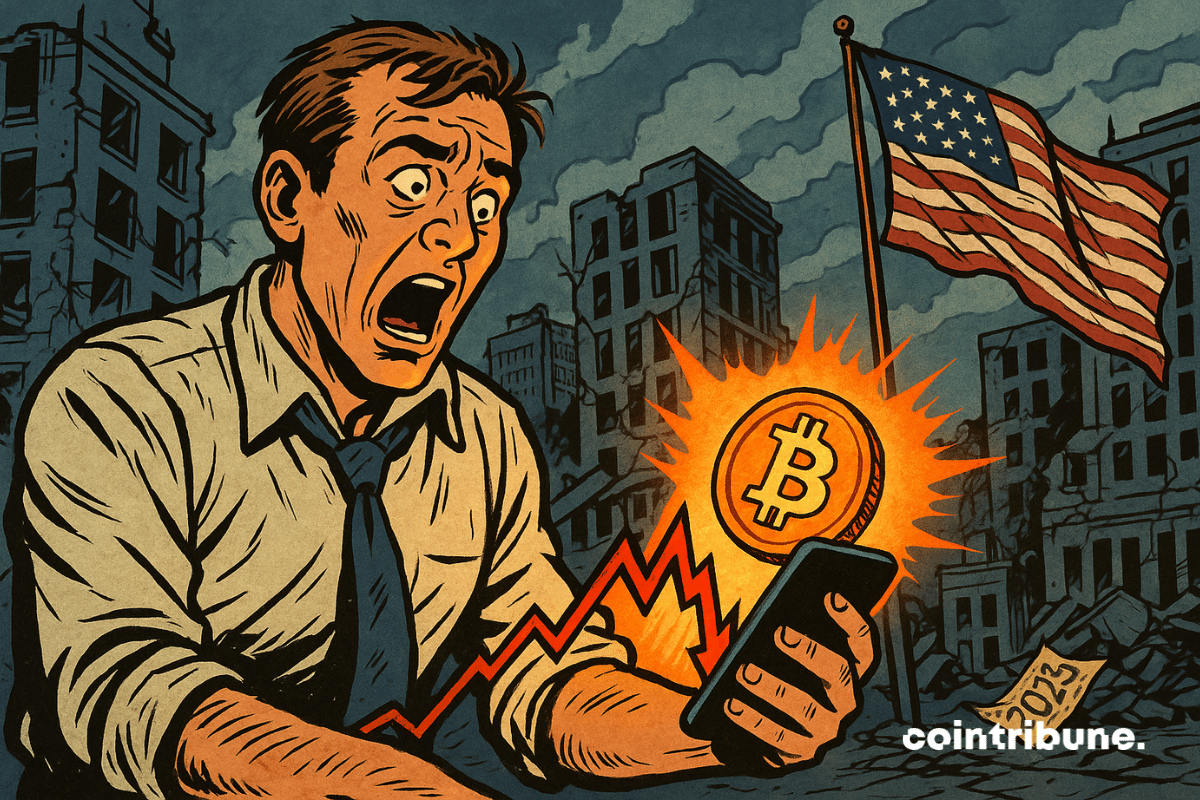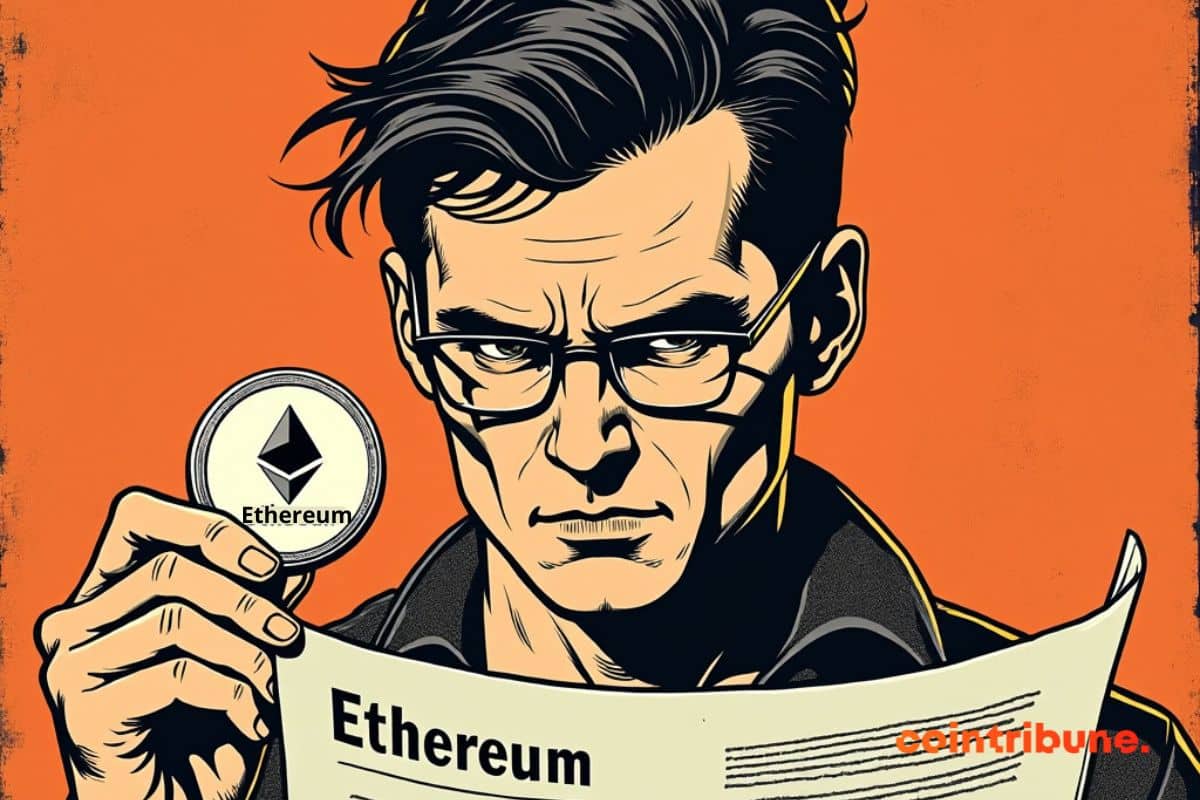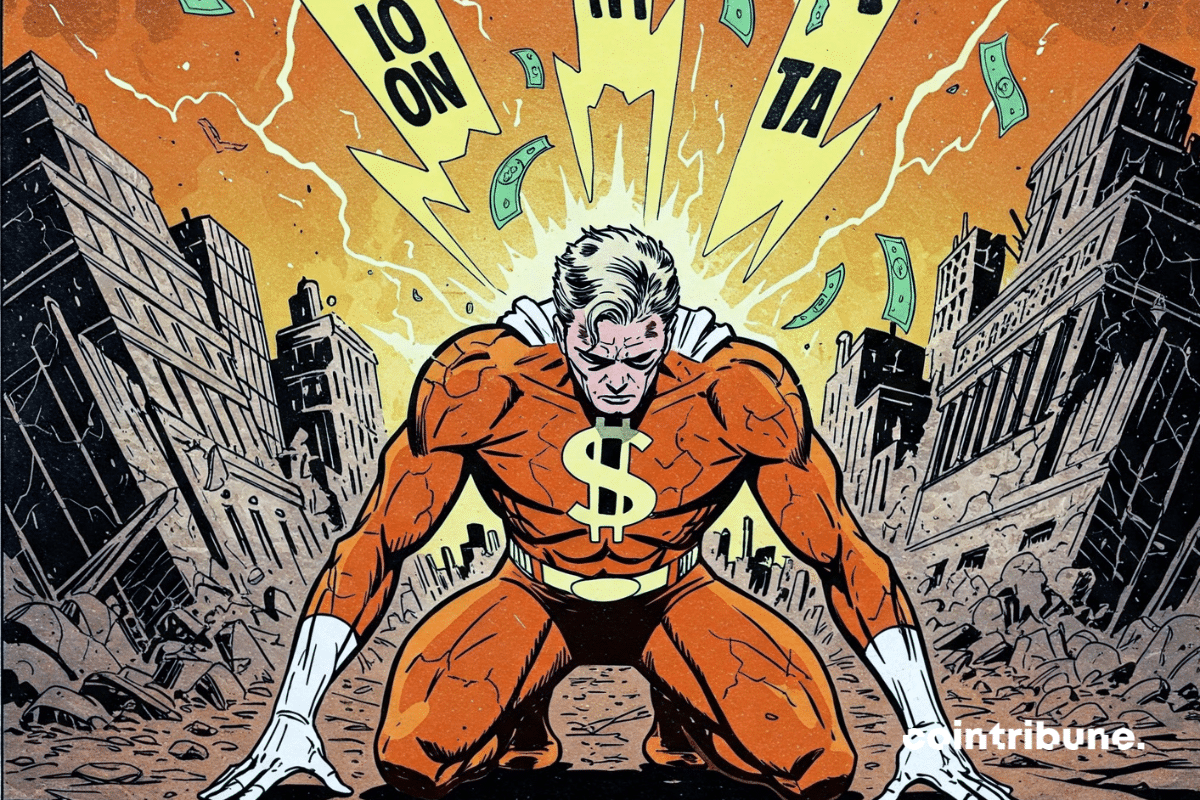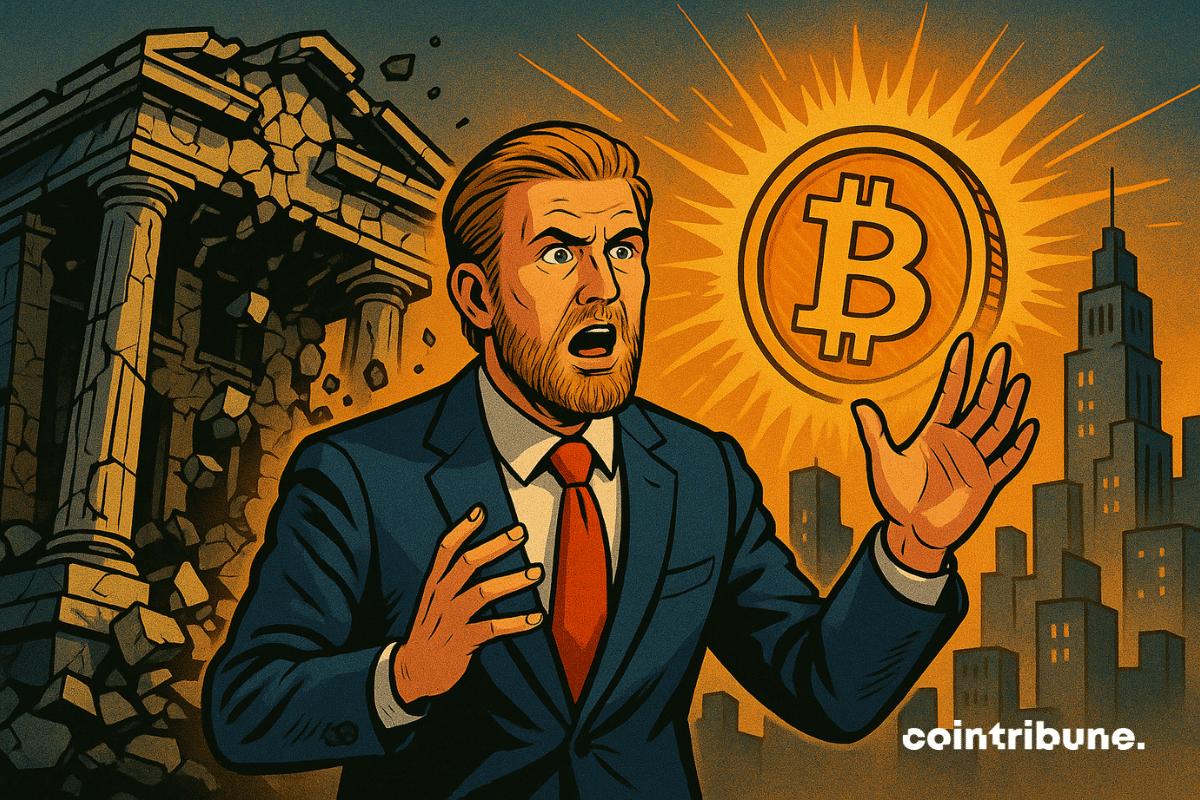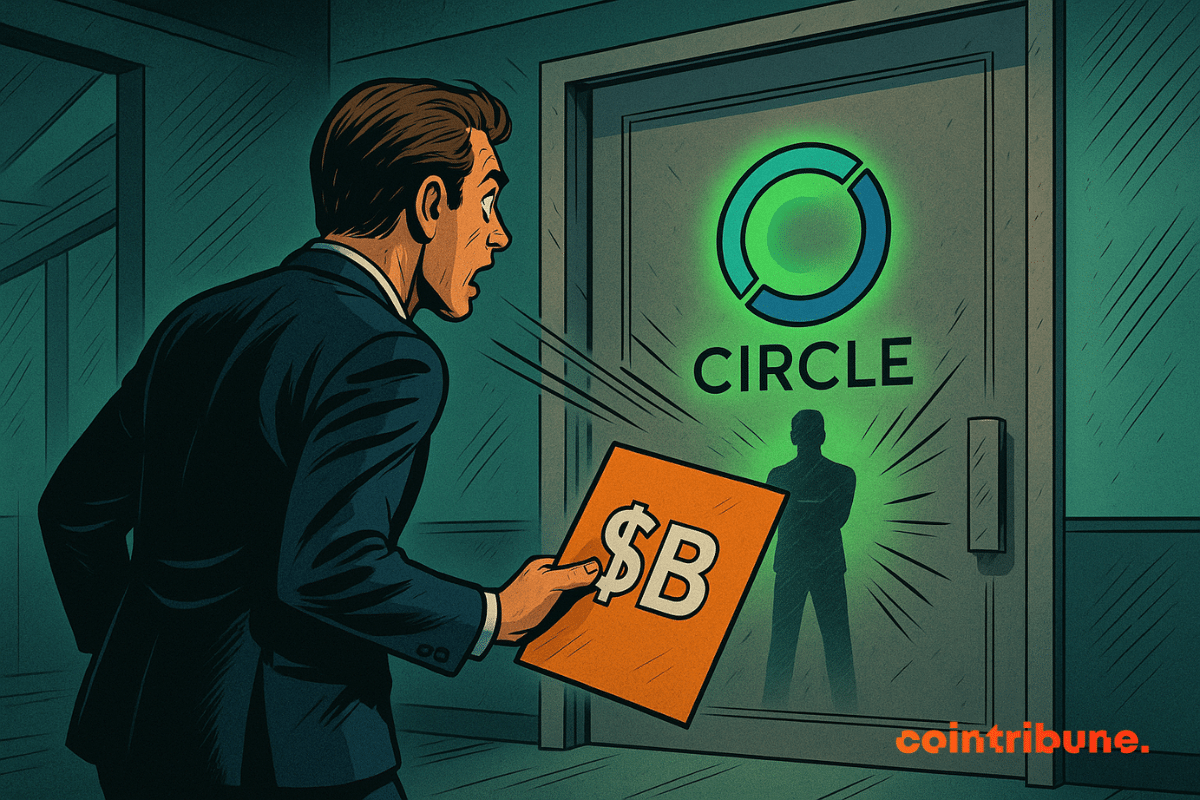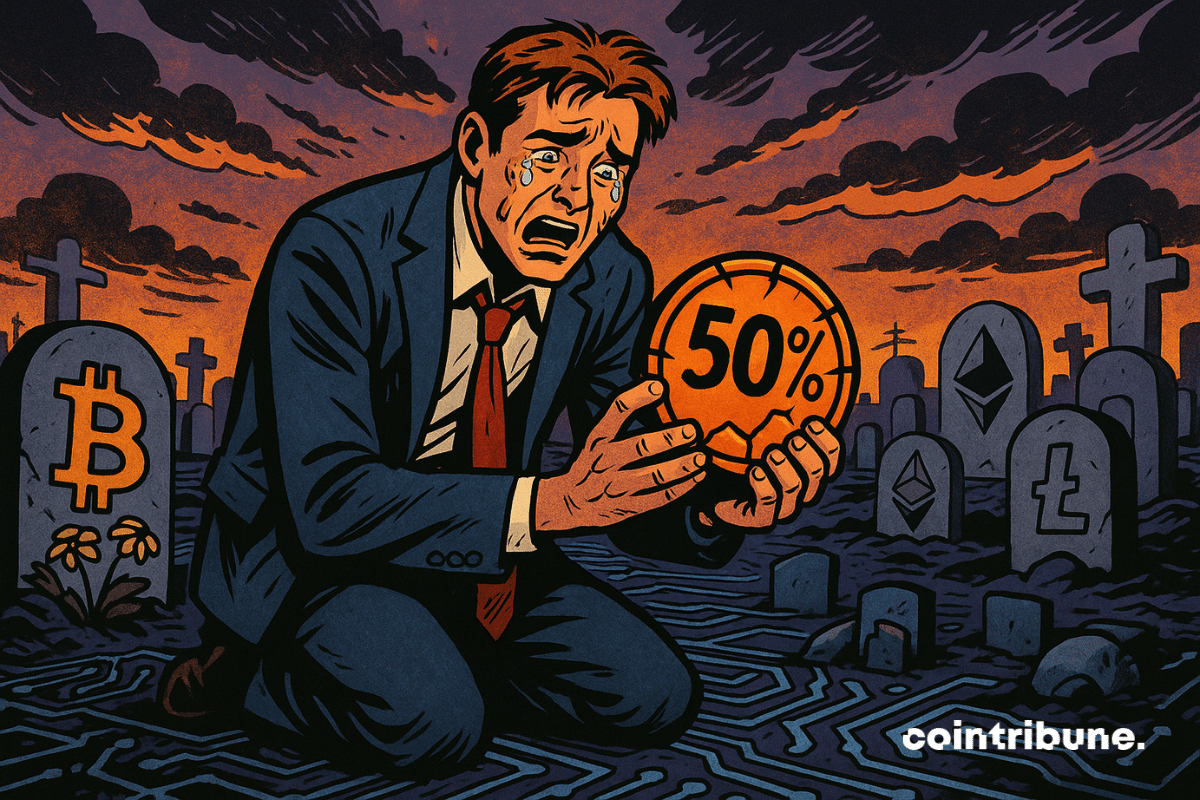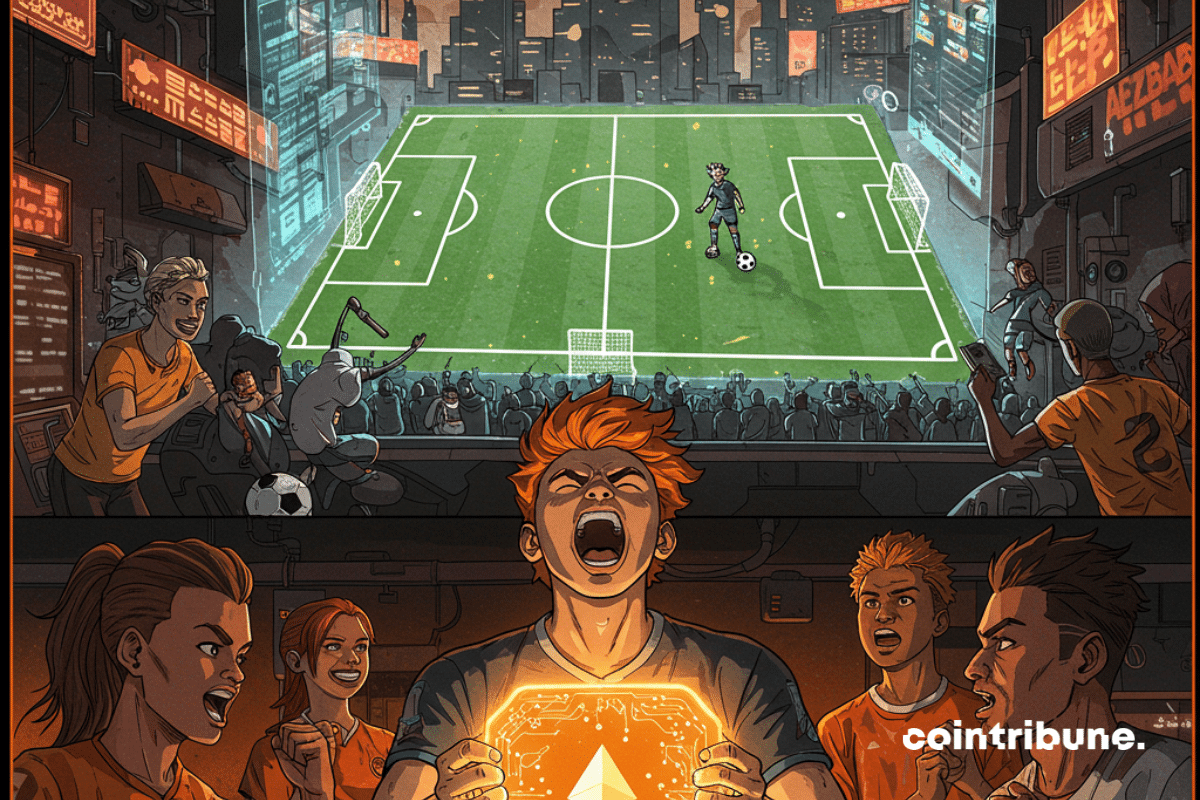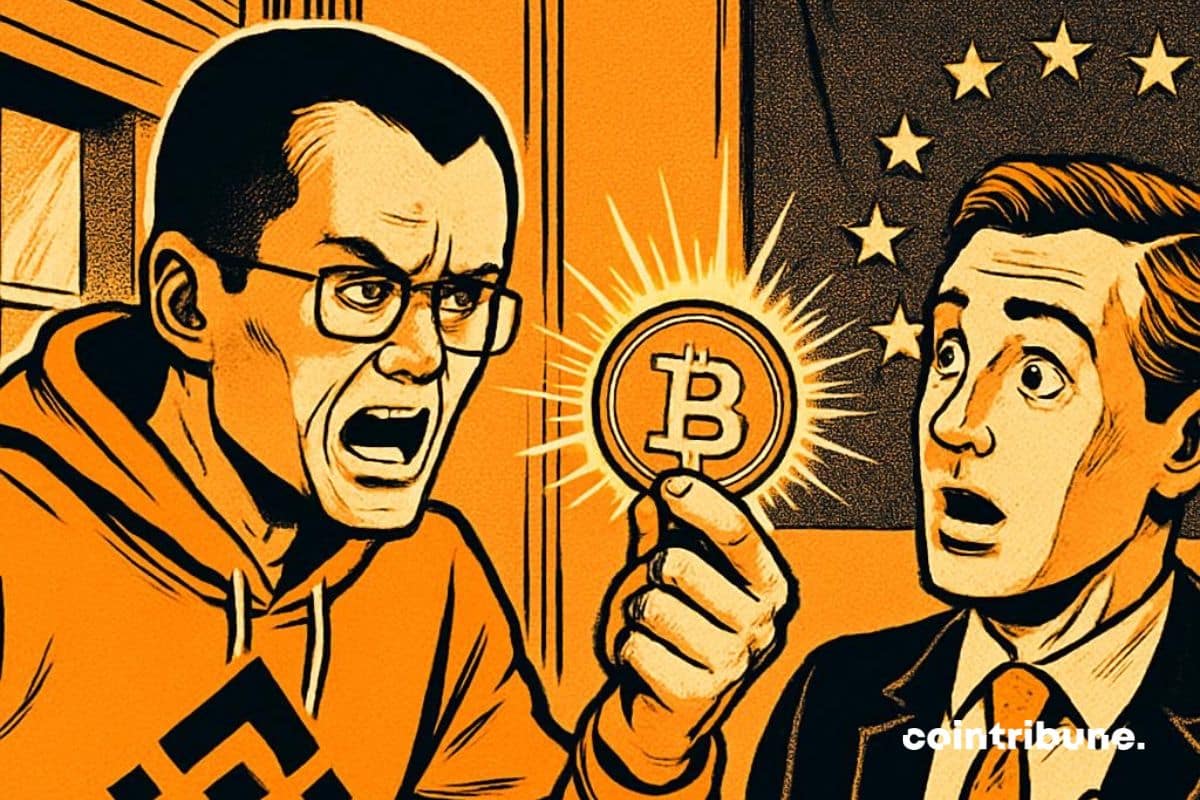Bitcoin shatters a record in Realized Capitalization, but not in price. Investors are betting on a future increase, while the current stagnation conceals an imminent explosion. Total suspense.
Archive 2025
The Chinese industry is showing signs of weakness. For the first time in over a year, the country's manufacturing activity has contracted, according to the latest figures from the National Bureau of Statistics. Indeed, the new tariff offensive launched by Donald Trump, with customs duties reaching up to 145%, is beginning to have an effect. In Wall Street as in Beijing, concern is rising. This trade standoff between the two powers awakens fears of a global slowdown with systemic consequences.
In the face of the contraction of the American economy, bitcoin could paradoxically benefit from it, according to André Dragosch, European head of research at Bitwise. This perspective is explained by the anticipation of interest rate cuts and the weakening of the dollar, two factors particularly favorable to cryptocurrency.
Vitalik Buterin has bold ambitions for Ethereum in 2025. With essential tools at his disposal, such as network resilience and large-scale decentralization, he unveils a vision that could redefine the future of crypto. It remains to be seen whether these plans will be enough to save Ethereum.
The American economy is declining for the first time since 2022. Heading towards a recession? Discover some key figures in this article!
And what if banks, the secular pillars of global finance, were living their last years? This is not the warning of a crypto maximalist, but that of Eric Trump. From the podium of Liberty University, the businessman warned: without rapid adoption of cryptos and blockchain, banks could disappear within a decade. Thus, in a context where decentralized finance is gaining ground, this position reveals the flaws of a rigid system faced with a rapidly accelerating technology.
Ripple, which wanted to acquire Circle for 5 billion, got the door slammed in its face. Result: a duel of stablecoins where USDC does not intend to let itself be overshadowed.
The crypto world is experiencing an unprecedented crisis, with more than half of the digital tokens having ceased all activity. According to data from GeckoTerminal, of nearly 7 million cryptocurrencies listed since 2021, about 3.7 million have gone bankrupt, representing an alarming failure rate of 52.7%.
The round ball is entering a new dimension. Forget simple passes and sliding tackles: FIFA has taken a step further into the metaverse. On April 30th, the global football organization announced the creation of a homegrown blockchain, simply called "FIFA Blockchain." A decision that, at first glance, seems purely technical. But behind the lines of code, a whole crypto strategy is taking shape, much bolder than it appears.
At the Token2049 conference in Dubai on April 30, Changpeng "CZ" Zhao, former CEO of Binance, did not mince his words: Europe is almost absent from the debate on crypto adoption. According to Zhao, while countries like the United Arab Emirates and Bhutan are accumulating bitcoin and ethereum as strategic reserves, European countries are moving "nowhere."
